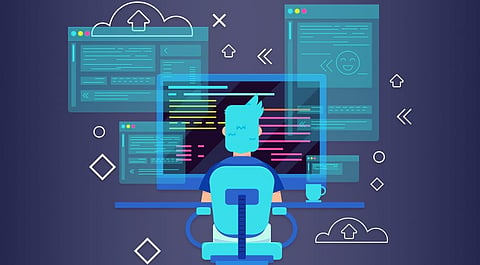
- Latest Legal News
- News
- Dealstreet
- Viewpoint
- Columns
- Interviews
- Law School
- Legal Jobs
- हिंदी
- ಕನ್ನಡ

There are few actions one can take right away that can create a ripple effect for change. Opening up data is one of them.
Creating public goods and breaking up silos has serious returns as we, a team of data scientists and economists at Development Data Lab, Berkeley, ETH Zurich and the World Bank, have realized through our work. In our most recent effort, we released the largest open-access judicial system dataset in the world spanning the universe of civil and criminal cases filed across India’s extensive lower judiciary over the past decade. We have been working for about two years to turn the Indian government’s extensive digital exhaust into something usable for and far beyond research.
We sought to study gender and religious in-group bias in the lower judiciary. And for this, had processed and de-identified legal case records for all lower courts in India filed between 2010–2018, using the government’s online case-management portal, eCourts.
The result: charges, filing, hearing and decision dates, trial outcomes, and case type details of 25 million criminal, and 65 million civil cases. We went a step further and applied machine algorithms to identify the gender of the accused, advocate, and judge for each case.
But it’s hard to not be conscious of the many more insights this dataset can reveal beyond the scope of our study and our limited capacity to unravel these. We can be sure that individuals and organizations, both known and unknown to us, can generate multiple derivative works. For example, one can leverage the data to get better insights into causes of pendency, create dashboards for the government to better allocate resources to overburdened districts, and write compelling investigative stories.
And as citizens who care about improving our justice system, our best bet lies in enabling more changemakers to see and solve justice problems. Open data is surely an enabler to reduce the upfront costs for others who don’t have our resources to source data: students, researchers, journalists, think tanks, civil society, faculty. It can allow them to apply their contextual knowledge and build on top of the data.
So, we invested in opening up our data: technically (accessible as per open standards), legally (under open licenses), and financially (accessible for free). Academics often post data from their projects when papers are published, but it is actually substantially more work to create open datasets that are highly usable by the public. We have decided to invest in doing this additional extra work because the social benefits of public data are so great.
This most recent release has convinced us yet again that open access and collaboration only grows the pie of returns. In the case of our justice data release, a transparent approach only added to the credibility of our results on gender and religious in-group bias among Indian judges.
The idea is fairly simple - instead of waiting for several years till a research product gets published in a journal, we release both the working analysis and the underlying data right away. Transparency and information access is a space where researchers have enormous contributions to make, in addition to the knowledge products they work on.
What is heartening is that we know we are not the only ones proactively choosing to be open. Several other researchers and organizations working with justice data have already taken the Open Data Pledge: Project 39A, Vidhi Center for Legal Policy, Dr. Aparna Chandra, Nick Robinson, Susan Thomas (IGIDR), CHRI and Studio Nilima, to name a few.
The movement has begun.
Over the next few months, we can be sure to see their data (and others who will follow) on the Justice Hub and we can only imagine the multiplier effect each of these datasets, individually and collectively can create to help more of us see and solve justice problems using data.
Each of you can easily participate in this movement in different ways. You can start by openly sharing the data you have! You can also use the data openly shared, to draw new insights, tell new stories and develop new solutions that serve justice.
Aditi Bhowmick is the India Director at Development Data Lab (DDL), where she is working closely with DDL co-founders: Professors Sam Asher and Paul Novosad, on a number of projects.
Supriya Sankaran is a lawyer, mother & changemaker at Agami, now co-creating Justice Hub with CivicDataLab to advance the open justice data movement in India.